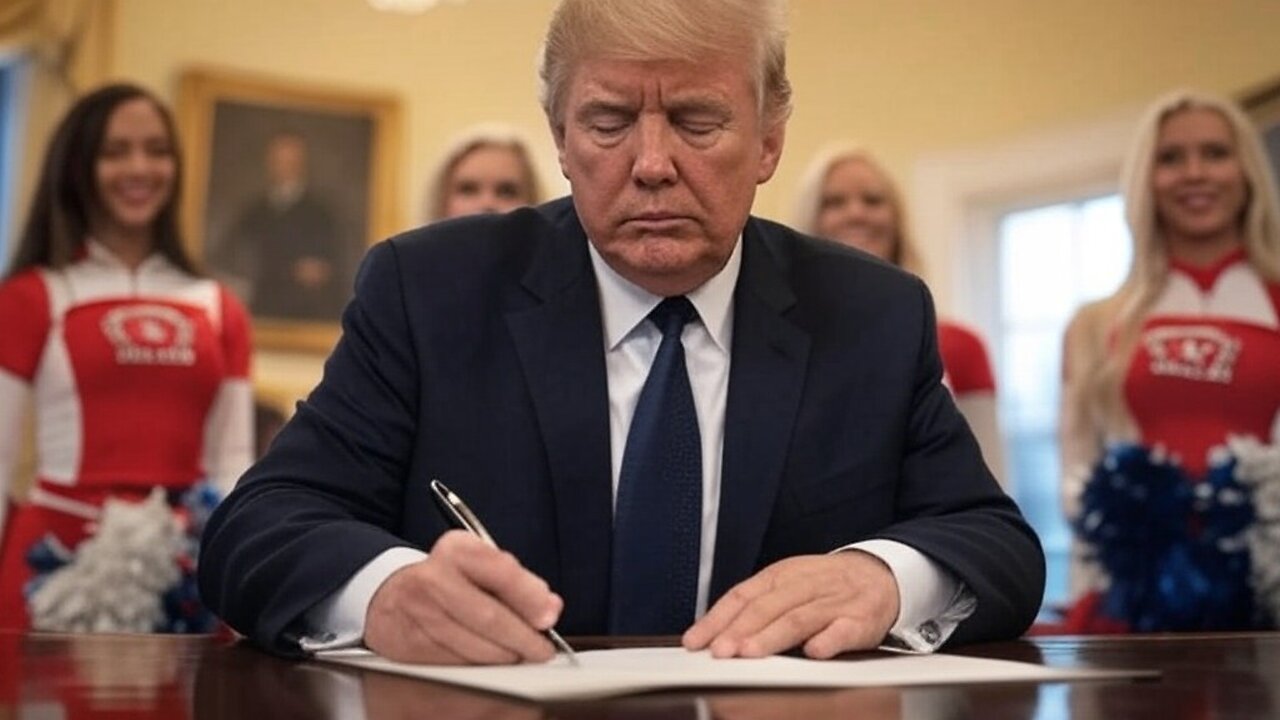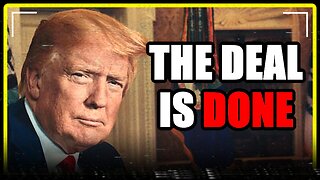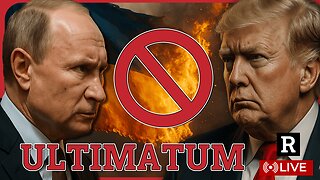Premium Only Content

Trump's Return to Office Reverses Biden's Policies, Reinstates American Values
On January 20, 2025, the United States witnessed a seismic shift in policy direction as Donald Trump, resuming his role as President, unleashed a torrent of executive orders aimed at dismantling Anti-America policies established by the Biden administration. Trump's actions were not just administrative; they were a clarion call to restore the fundamental American ideals of liberty, freedom, and national sovereignty. From immigration to energy policy, from cultural values to economic regulations, Trump's first day in office was marked by a clear intent to redefine America's domestic and international posture, aiming to unshackle the nation from overreaching government control and ideological impositions.
Trump's immediate declaration of a national emergency at the U.S.-Mexico border underscored his commitment to securing the nation's borders. The end of "catch and release" and the resumption of border wall construction were presented as measures to restore control over who enters America, protecting the country from an uncontrolled influx of illegal immigrants. The "Remain in Mexico" policy was reinstated to ensure only genuine asylum claims would be processed, reducing system abuse. However, this measure didn't go far enough, as new asylum claims should not be processed until all the fake asylum seekers are removed from the country. By designating criminal cartels as terrorist organizations and challenging birthright citizenship, Trump aimed to safeguard American citizenship and cultural identity, taking these steps as essential to upholding the nation's laws and traditions.
Trump's decision to withdraw from the Paris Climate Agreement was seen as a liberation from international constraints on American industry. By declaring a national energy emergency, he sought to cut through red tape, empowering domestic energy production. This would lead to energy independence, bolster economic growth, and put American interests first, reducing reliance on foreign energy sources and promoting jobs within the U.S.
DEI initiatives, also known as "Didn't Earn It," which gives unearned benefits to certain groups, like the blacks, led Donald Trump to sign an executive order aimed at ending Diversity, Equity, and Inclusion programs within the federal government. Trump positioned himself as a defender of meritocracy against divisive equity measures. By ending these programs, he aimed to shift focus back to individual achievements rather than group identity. His policy recognizing only two biological sexes was seen as a stand against "woke" ideology, protecting traditional values and biological realities in federal documentation.
Trump's moves to freeze federal regulations, impose a hiring freeze, and reinstate "Schedule F" were portrayed as efforts to make government more accountable and efficient. The establishment of the "Department of Government Efficiency" was intended to streamline government operations, reducing waste and enhancing freedom by minimizing governmental interference in private lives.
The pardons issued for those involved in the January 6th events were a long-overdue correction to the unjust imprisonment of individuals by the Biden administration, which was motivated by political vendettas. These pardons underscored Trump's emphasis on the right to free speech and protest. Trump argued that these actions were essential to restore balance to a justice system that has been weaponized against political dissent.
Trump's rescinding of numerous Biden-era executive actions was seen as a move to liberate businesses from regulatory constraints, fostering an environment where economic liberty could flourish. His focus on inflation through a presidential memorandum was presented as a direct response to the financial pressures felt by American citizens, aiming for economic stability.
Trump's executive order to end "wokeness" in the military directly criticized the current military leadership for a descent into political correctness rather than combat readiness. He accused leaders of prioritizing diversity training and environmental concerns over traditional military values and operational effectiveness. This move was framed as a necessary purge of ideologies that had weakened the military's core mission. By targeting these policies, Trump aimed to restore a focus on merit, discipline, and national defense, suggesting that recent military leadership had lost sight of these fundamental principles in favor of social agendas.
Donald Trump's first day back in office was marked by an audacious effort to undo policies that are considered detrimental to American ideals. His executive actions were not merely administrative but symbolic, aiming to restore a vision of America where liberty, freedom, and national sovereignty are paramount. This was seen by his supporters as a long-awaited return to what they consider the true essence of America. As these policies begin to take effect, the nation will watch closely to see if they indeed restore the liberty and freedom Trump promises or if more aggressive executive orders are needed to target problem areas. Regardless, Trump's first day set the tone for a presidency intent on reshaping America, contrasting with the policies of the previous administration.
#TrumpFirstDay #AmericanSovereignty #EconomicFreedom #LibertyRestored #NationalIdentity
-
 LIVE
LIVE
Glenn Greenwald
1 day agoWhat are CBS News' Billionaire Heirs Doing with Bari Weiss? With Ryan Grim on the Funding Behind It; Europe Capitulates to Trump Again | SYSTEM UPDATE #494
10,064 watching -
 LIVE
LIVE
RiftTV
1 hour agoCNN Calls Black NY Shooter WHITE, Cincinnati FATIGUE | The Rift | Guest: Braeden Sorbo, 2Protects1
813 watching -
 LIVE
LIVE
SpartakusLIVE
39 minutes agoThe Return of the KING of Content
170 watching -
 10:05
10:05
MattMorseTV
3 hours ago $0.33 earnedHe actually did it...
7497 -
 1:00:06
1:00:06
BonginoReport
3 hours agoCNN Speculates NYC Gunman’s Race, Gets it WRONG - Nightly Scroll w/ Hayley Caronia (Ep.100)
80.9K23 -
 1:45:16
1:45:16
Redacted News
4 hours agoTrump issues Ultimatum to Putin "End this war now or else," Russia not backing down | Redacted Live
167K127 -
 LIVE
LIVE
Fragniac
43 minutes ago🟢MAKE GAMING GREAT AGAIN‼
69 watching -
 LIVE
LIVE
Joker Effect
1 hour agoCliques! Cliques Cliques! Are they toxic? Rumble Ambassadors and Network Axis Group chime in!
334 watching -
 1:07:56
1:07:56
Michael Franzese
3 hours agoBillionaire Insider Exposes Epstein’s Real Blackmail Operation
24.5K30 -
 46:12
46:12
Candace Show Podcast
4 hours agoBrigitte Presents “Proof” Her Brother Is Alive. | Candace Ep 221
57.6K146